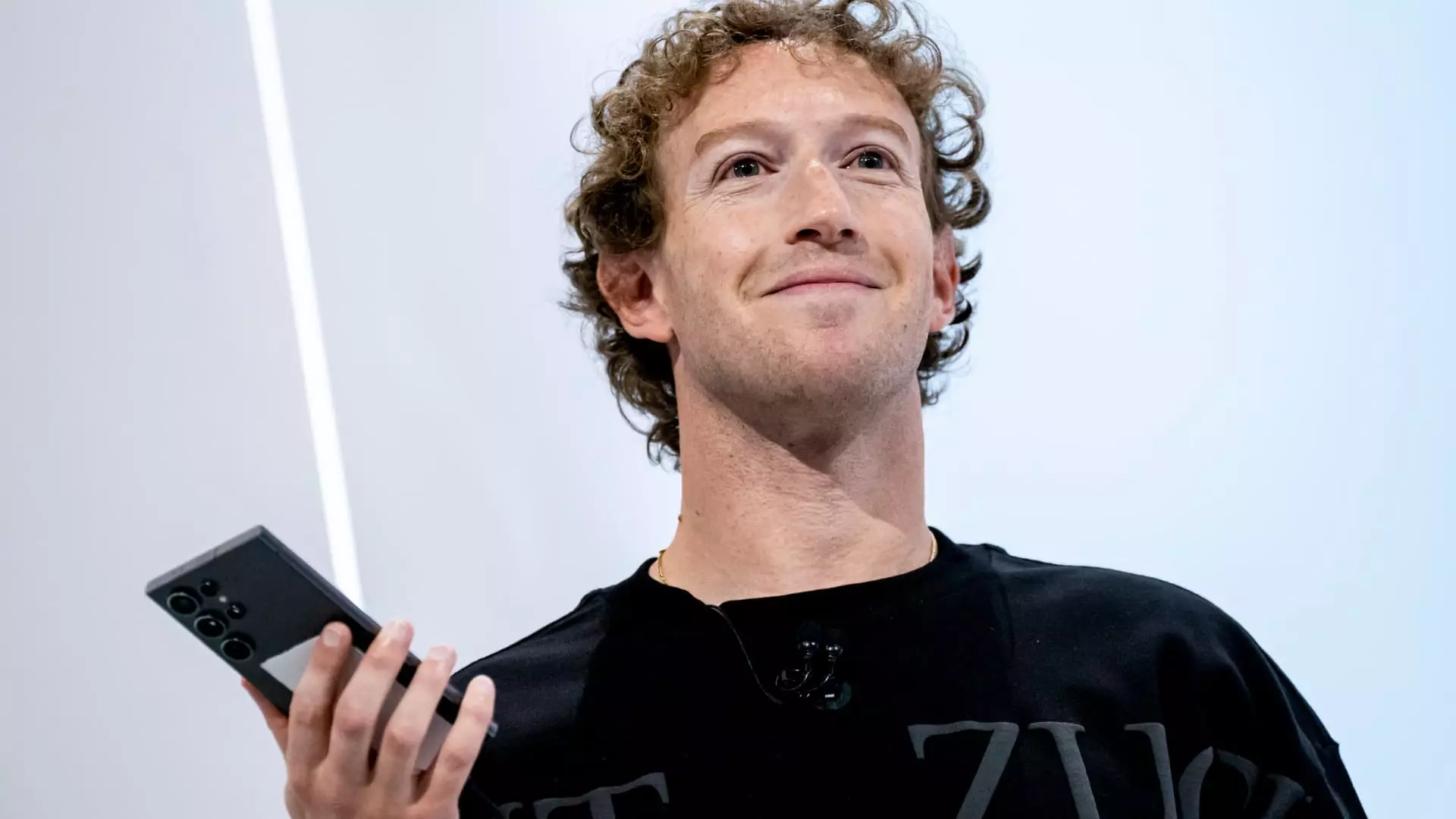In a recent episode of the “Joe Rogan Experience,” Mark Zuckerberg, the CEO of Meta, launched a calculated criticism of Apple, focusing on what he perceives as a plateau in the latter’s innovation and the arbitrary nature of its business practices. This podcast discussion highlighted several key aspects of the ongoing rivalry between two of the biggest players in technology—Meta and Apple. Through an assessment of Zuckerberg’s statements, one can gain a clearer insight into the competitive landscape in which both companies operate, as well as the implications of their respective strategies.
Zuckerberg began his critique by acknowledging the monumental influence of the iPhone, citing its role in revolutionizing global communication. He underscored how the device has integrated into the lives of billions, suggesting that Apple’s initial innovation set the stage for remarkable technological advances. However, he quickly shifted gears, expressing his disappointment with what he perceives as a stagnation in innovation at Apple. According to Zuckerberg, the company has not introduced significant advancements since Jobs’ era. Instead, it seems to rely on the legacy of past innovation without delivering products that disrupt or redefine market expectations.
The crux of Zuckerberg’s argument is that Apple has become complacent, leading to a lack of transformative innovations. He paints a picture of a company “sitting on” its success rather than pushing for new technological frontiers. This sentiment resonates with many tech enthusiasts who have noticed a pattern of minimal upgrades with recent iPhone iterations. Zuckerberg referenced a decay in consumer willingness to upgrade their devices—an insight that could potentially destabilize Apple’s financial model.
Zuckerberg’s critique extended beyond innovation to include Apple’s monetization strategies, specifically the contentious 30% cut imposed on app developers through its App Store policies. He presented this as a case of exploitation rather than support—asserting that such a cut ultimately limits developers’ profit margins and stifles innovation in the app ecosystem. By creating barriers to entry for third-party accessories and services, Apple undercuts potential competition—a strategy that some may argue is necessary for maintaining its own dominance but one that Zuckerberg believes is detrimental to overall industry growth.
There’s a suggestion in Zuckerberg’s commentary that Apple’s revenue is increasingly reliant on this “squeezing” of developers, hinting at a possibly unsustainable business model. He implies that there exists a paradox where a company celebrated for its user-centric philosophy may be prioritizing profit over its developer community’s wellbeing.
One of the most intriguing aspects of Zuckerberg’s criticism involves Apple’s justification for its restrictive practices: consumer security and privacy. He argues that this narrative serves as a convenient shield for the company’s anti-competitive behaviors. Notably, Zuckerberg believes that with improved security protocols and better encryption, Apple could foster a more open ecosystem rather than using perceived security challenges to maintain exclusive control over accessory compatibility. This assertion not only questions Apple’s motives but also underscores a larger industry debate on privacy versus accessibility, wherein both companies have staked their reputations.
Zuckerberg did not shy away from addressing specific product lines, particularly the recently launched Vision Pro headset. He acknowledged the ambitious nature of the project but questioned its early reception in the market. By offering a reminder that first iterations are often a work in progress, Zuckerberg was cautious in his critique, yet he firmly pointed out that the Vision Pro had not met the lofty expectations set by Apple. Just as Meta is attempting to carve out its territory within the virtual reality space with the Meta Quest, Apple’s missteps provide an opportunity for competitors to gain traction.
Zuckerberg’s insights reflect critical assessments of Apple’s strategies, conveying his frustrations over what he perceives as a lack of genuine innovation. As both companies grapple with shifts in consumer expectations, market dynamics, and technological advancements, it will be essential for them to address not only their product offerings but also their core business philosophies. The dialogue surrounding competition in technology is ever-evolving, and such critiques are likely to fuel ongoing discussions within the tech community, shaping the future of innovation for both Meta and Apple.

